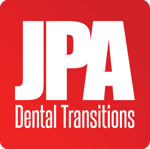Many of us make typical mistakes when it comes to financial planning. We earn, spend, save, and invest money without compiling a plan for our future. What hurts the most is when we’re hit hard by life-changing events and consequently, face negative financial consequences. Even so, we find that it’s a common trend for people not to prepare financially for important life events. For dentists, financial planning is not only important for their financial future, but for their patients and for the success of their practice. In this article, we take a look at why dental practice budgets are so important when it comes to financial planning.
In fact, without a dental practice budget, dentists can’t have a true understanding of where they are financially. This means they can’t create a solid roadmap for maximum practice success, especially when they want to sell their practice later.
After years of consulting with dentists, financial planners, CPAs and more, we’ve noticed an ongoing trend of doctors not prioritizing budgeting.
Here are a few essential factors you need to know about dental office budgets.
When creating a budget for your dental practice...
Always make sure you’re paid first. It’s the number one rule in owning a business. To put it into perspective, imagine a doctor who only makes $60,000 trying to run a $600,000 dollar practice.
This is a massive dollar difference. If you want to sell with these numbers, your prospective buyer starts thinking, “Well, if the seller isn’t getting paid...am I not going to get paid?” Remember, the buyers are the ones looking at the paperwork and financial statements along with their advisors. When they see that you aren’t making much money, why would they step into those shoes?
Remember the number one thing that a buyer will ask is…
“What are the revenues that will come to me when I buy your practice?”
Are you prepared to answer that question? If you don’t know where to start in determining what your revenues are, we recommend reaching out to a dental-specific financial advisor or CPA.
![]()
You need both a personal and dental practice budget.
1. Your practice needs to support your personal budget.
This applies to a seller and a buyer. If you’re a buyer looking to purchase a practice, you bring your own personal debt to a practice. When the bank or brokers look at your debt and the cash flow of the practice, they see how much money is left over for you after the purchase. When they acquire that number, the broker will ask if it works. Sometimes it does, sometimes it doesn’t. There are many different reasons why. Some numbers won’t work depending on the debt of the buyer, overheads (on a personal level), and budgets.That’s why it’s important to know what debt the doctor has on a personal level, especially if they are not living within their means.
For example, when a seller lives beyond their means and their practices’ means, they are trying to fund their way of living through the practice. Essentially, they are running things on a shoestring.

When you run expenses through the business and try to sell the practice, it’s important to be able to track those expenses and show a prospective buyer that they were discretionary spendings.
This is typically what happens when doctors send in documents for an appraisal and have thousands of dollars under “miscellaneous” expenses or discretionary spendings hidden in multiple categories. This doesn’t help us or the buyer decipher between a personal or business expense. As a result, we can’t tell the buyer what the expenses are without the seller’s help to decipher, the buyer can’t go to the bank, and the bank is not going to fund it. Ultimately, they won’t loan the funds if they don’t know what the true expenses are and what the discretionary expenses are.
That’s why it’s so important to delineate your personal expenses from the business expenses and the true overhead versus the discretionary overhead in the practice. You have to know what those numbers are because you don’t want the buyer to come in and look at the paperwork and not understand the difference between the money you’re spending (that they’re not going to be spending) versus what they will take home.
2. Stay on track and plan for your future with a business budget.
The practice itself has to have a budget too. There are many different budgets that must come together and work in coordination with each other to run a successful practice. On the practice side, there is a lot of information and advisors out there that specialize in overhead management.
Let’s say your overhead is 82 percent. For every dollar that you get in, 82 percent of it will go to your expenses. It impacts how much money is coming to you. Dental-specific advisors or financial consultants will adjust, see where things are out of balance, where numbers should be brought down, where you’re overspending, etc. This allows them to focus on getting your practice at the sweet spot in the dental industry, which is an average adjusted dental office overhead of 60 to 65 percent.

Maximize practice success with better budgeting
As you can see, budgeting your personal and dental practice expenses is essential to the overall success of your practice. Be organized, lean on the advice of your advisors, and be diligent in your budgeting. If you don’t know the general gross of your practice, don’t worry you are not alone. We help doctors realize their numbers every day and can help you get on the right track. Let us know if you need any help.

 980.283.7355
980.283.7355













Comment